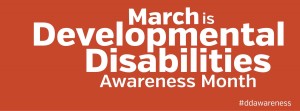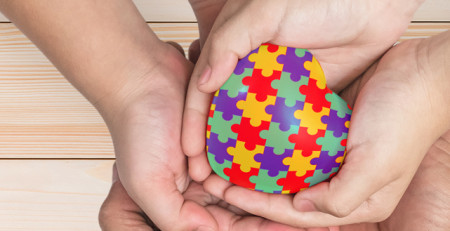March is National Developmental Disabilities Awareness Month
In 1987, President Ronald Reagan proclaimed March as Developmental Disabilities Awareness Month. President Reagan issued this public proclamation with the goal of urging Americans to provide individuals with developmental disabilities “the encouragement and opportunities they need to lead productive lives and to achieve their full potential.”
The Center for Disease Control (CDC) defines developmental disabilities as a group of conditions due to an impairment in physical, learning, language or behavior areas. They include but are not limited to the following:
- Attention-Deficit/Hyperactivity Disorder
- Autism Spectrum Disorder
- Cerebral Palsy
- Learning or Intellectual Disorders
- Hearing Loss
- Vision Impairment
Between 2014 and 2016, the prevalence of children diagnosed with developmental disabilities increased significantly. Currently, about 1 in 6 children in the U.S. aged 3 to 17 (about 17%) have one or more developmental disabilities. Additionally, 61 million adults in the United States, nearly 1 in 4 (26%), live with a disability(www.cdc.gov). In 2006, health care expenditures associated with disability were estimated to be nearly $400 billion dollars.
Working-age adults with disabilities (ages 18-44) are more likely to encounter healthcare access barriers: 1 in 3 adults with disabilities do not have a usual healthcare provider, have an unmet healthcare need because of cost in the past year; and 1 in 4 adults with disabilities did not have a routine check-up in the past year. (www.cdc.gov)
Why Is This Important?
People with developmental disabilities need the education, tools, and access to healthcare and health programs to ensure that they make healthy choices and prevent illness. Education is the key to living a healthy lifestyle, and leading a long and healthy life.
Toolkits:
The CDC has compiled a list of resources for persons with disabilities as well as professionals who work with people with disabilities. You can access those resources here: https://www.cdc.gov/ncbddd/developmentaldisabilities/links.html









Leave a Reply
You must be logged in to post a comment.